NextGen 2024: Bone Marrow Transplantation (BMT) Session Part 5
 AI Summary
AI Summary
Key Insights
- Criteria for considering BMT includes failure to achieve durable response to medications, progressive organ damage, recurrent MAS episodes, and significant morbidity from medication side effects.
- The University of Minnesota approaches sJIA cases individually, preferring monogenic hyper inflammatory disorders and emphasizing consideration before lung or liver disease progresses.
- Early HCT referral in 2023 focuses on pulmonary issues, risk factors, and disease trajectory, while in 2024 it targets disease trajectory and progressive lung disease on therapy.
- Decision-making for HSCT referral involves weighing medical therapy against HSCT outcomes, considering donor match options, and acknowledging the complexity of the decision.
- Factors favoring HSCT include organ involvement, the need for fastidious monitoring, and the exhaustion of reasonable medical therapies; family preference also plays a role.
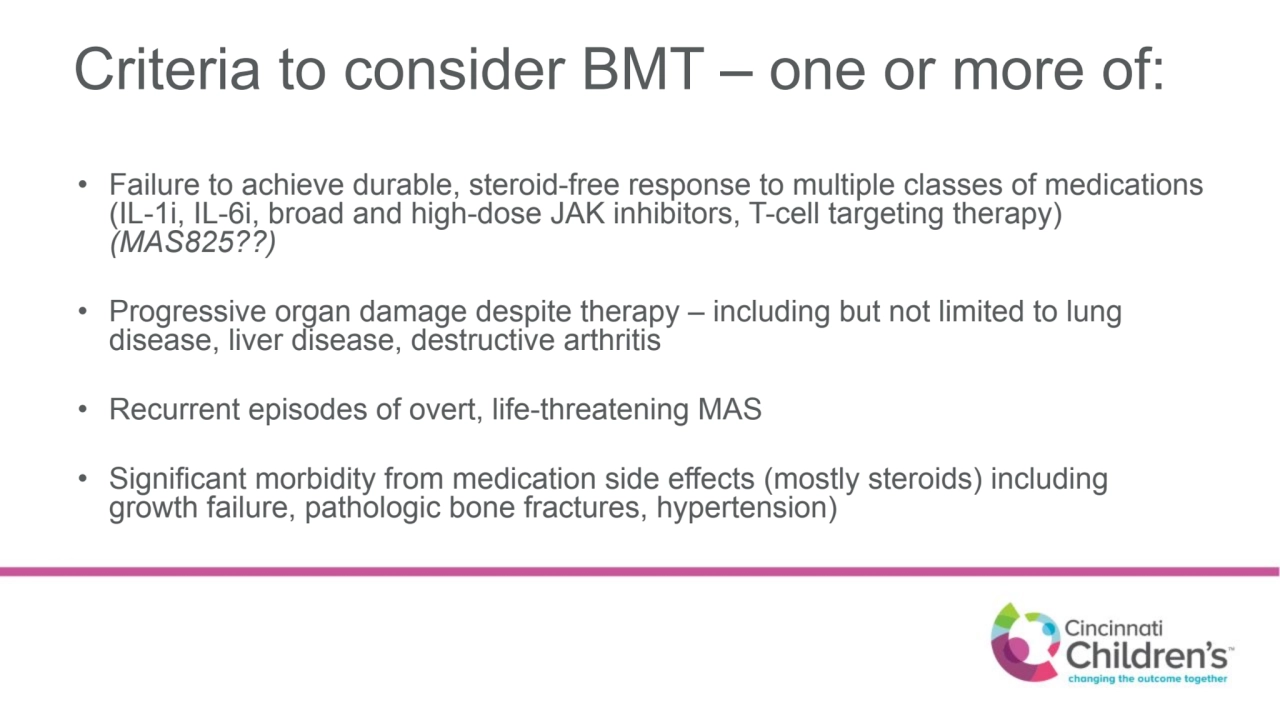
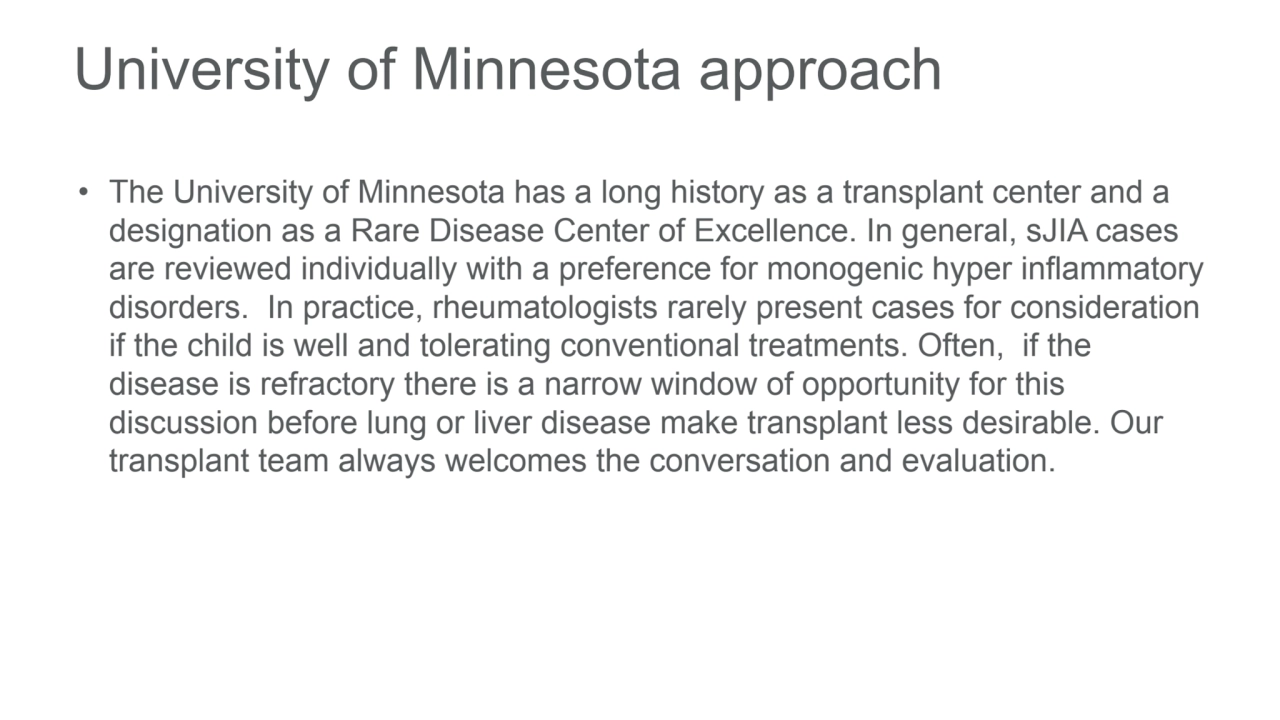
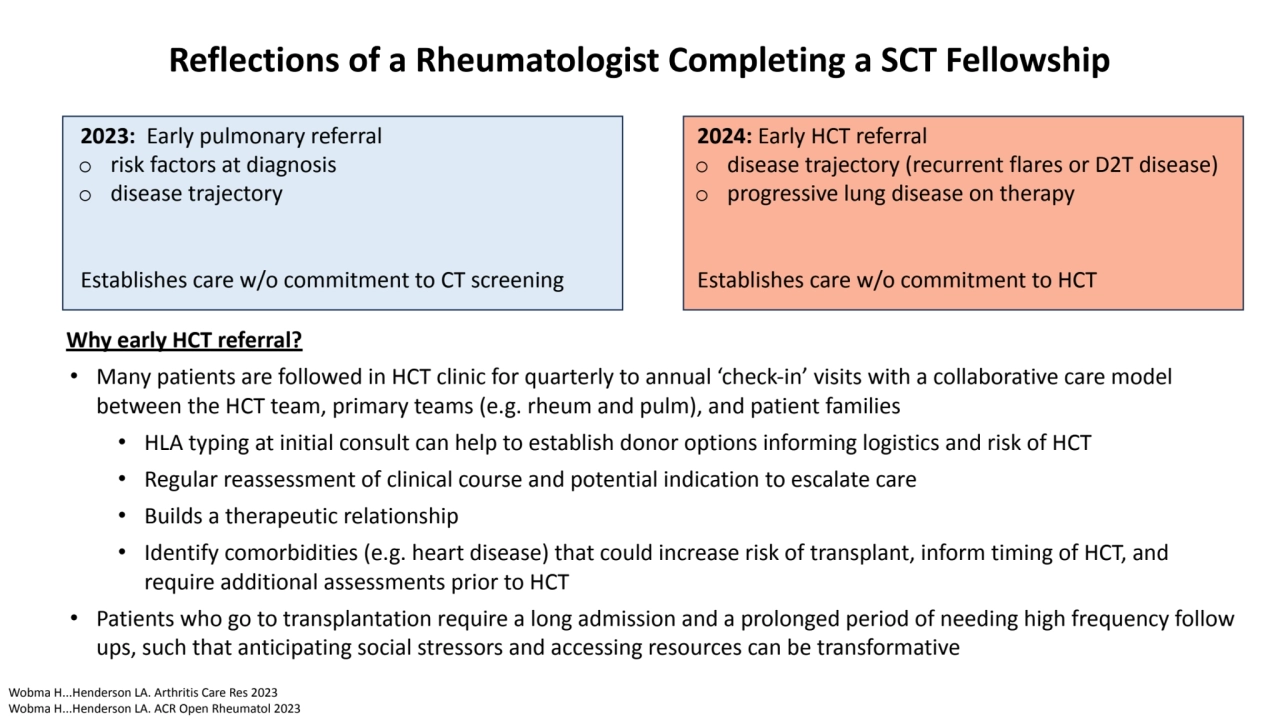
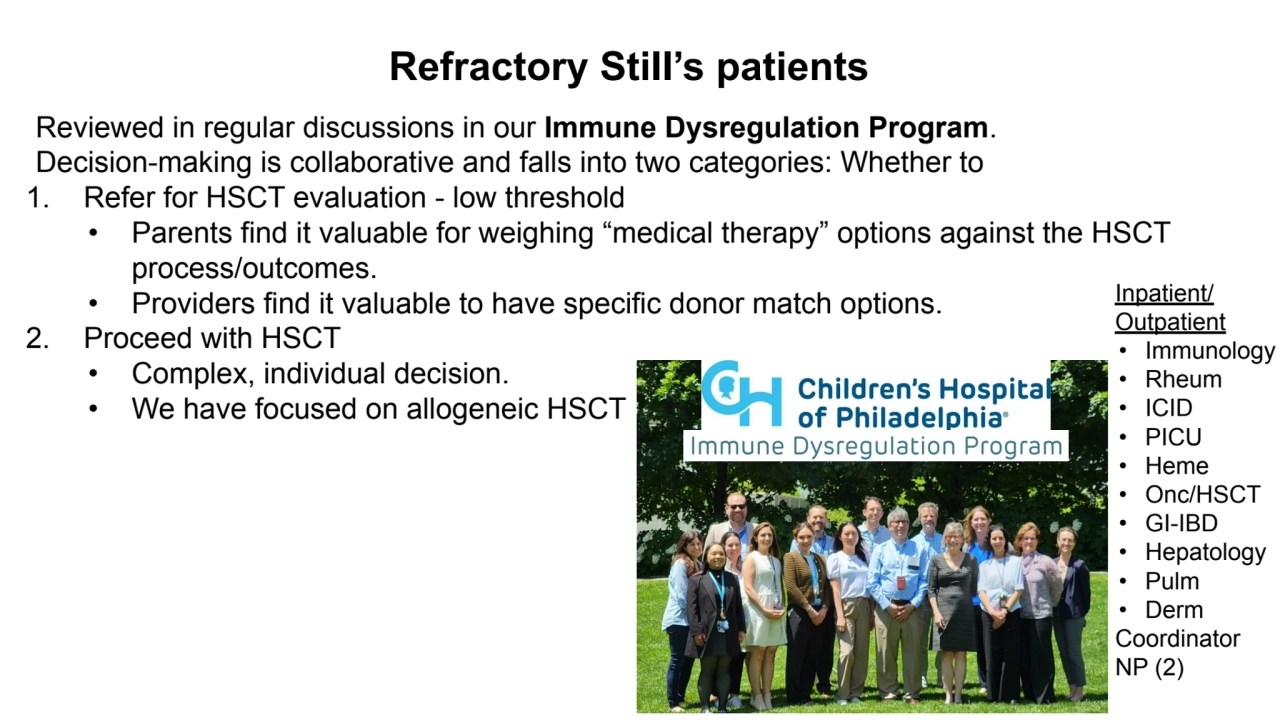
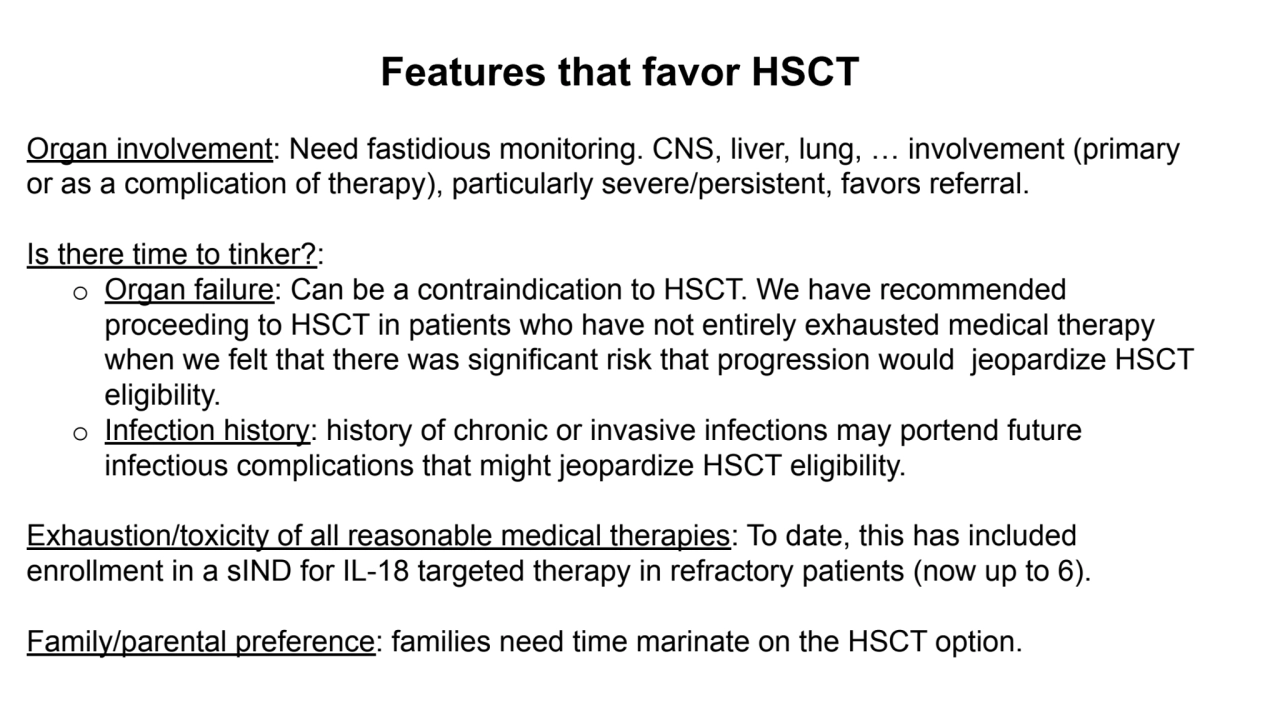
NextGen 2024: Bone Marrow Transplantation (BMT) Session Part 5
- 1. Criteria to consider BMT – one or more of: • Failure to achieve durable, steroid-free response to multiple classes of medications (IL-1i, IL-6i, broad and high-dose JAK inhibitors, T-cell targeting therapy) (MAS825??) • Progressive organ damage despite therapy – including but not limited to lung disease, liver disease, destructive arthritis • Recurrent episodes of overt, life-threatening MAS • Significant morbidity from medication side effects (mostly steroids) including growth failure, pathologic bone fractures, hypertension)
- 2. University of Minnesota approach • The University of Minnesota has a long history as a transplant center and a designation as a Rare Disease Center of Excellence. In general, sJIA cases are reviewed individually with a preference for monogenic hyper inflammatory disorders. In practice, rheumatologists rarely present cases for consideration if the child is well and tolerating conventional treatments. Often, if the disease is refractory there is a narrow window of opportunity for this discussion before lung or liver disease make transplant less desirable. Our transplant team always welcomes the conversation and evaluation.
- 3. Reflections of a Rheumatologist Completing a SCT Fellowship 2023: Early pulmonary referral o risk factors at diagnosis o disease trajectory Establishes care w/o commitment to CT screening 2024: Early HCT referral o disease trajectory (recurrent flares or D2T disease) o progressive lung disease on therapy Establishes care w/o commitment to HCT Why early HCT referral? • Many patients are followed in HCT clinic for quarterly to annual ‘check-in’ visits with a collaborative care model between the HCT team, primary teams (e.g. rheum and pulm), and patient families • HLA typing at initial consult can help to establish donor options informing logistics and risk of HCT • Regular reassessment of clinical course and potential indication to escalate care • Builds a therapeutic relationship • Identify comorbidities (e.g. heart disease) that could increase risk of transplant, inform timing of HCT, and require additional assessments prior to HCT • Patients who go to transplantation require a long admission and a prolonged period of needing high frequency follow ups, such that anticipating social stressors and accessing resources can be transformative Wobma H...Henderson LA. Arthritis Care Res 2023 Wobma H...Henderson LA. ACR Open Rheumatol 2023
- 4. Refractory Still’s patients Reviewed in regular discussions in our Immune Dysregulation Program. Decision-making is collaborative and falls into two categories: Whether to 1. Refer for HSCT evaluation - low threshold • Parents find it valuable for weighing “medical therapy” options against the HSCT process/outcomes. • Providers find it valuable to have specific donor match options. 2. Proceed with HSCT • Complex, individual decision. • We have focused on allogeneic HSCT Inpatient/ Outpatient • Immunology • Rheum • ICID • PICU • Heme • Onc/HSCT • GI-IBD • Hepatology • Pulm • Derm Coordinator NP (2)
- 5. Features that favor HSCT Organ involvement: Need fastidious monitoring. CNS, liver, lung, … involvement (primary or as a complication of therapy), particularly severe/persistent, favors referral. Is there time to tinker?: o Organ failure: Can be a contraindication to HSCT. We have recommended proceeding to HSCT in patients who have not entirely exhausted medical therapy when we felt that there was significant risk that progression would jeopardize HSCT eligibility. o Infection history: history of chronic or invasive infections may portend future infectious complications that might jeopardize HSCT eligibility. Exhaustion/toxicity of all reasonable medical therapies: To date, this has included enrollment in a sIND for IL-18 targeted therapy in refractory patients (now up to 6). Family/parental preference: families need time marinate on the HSCT option.